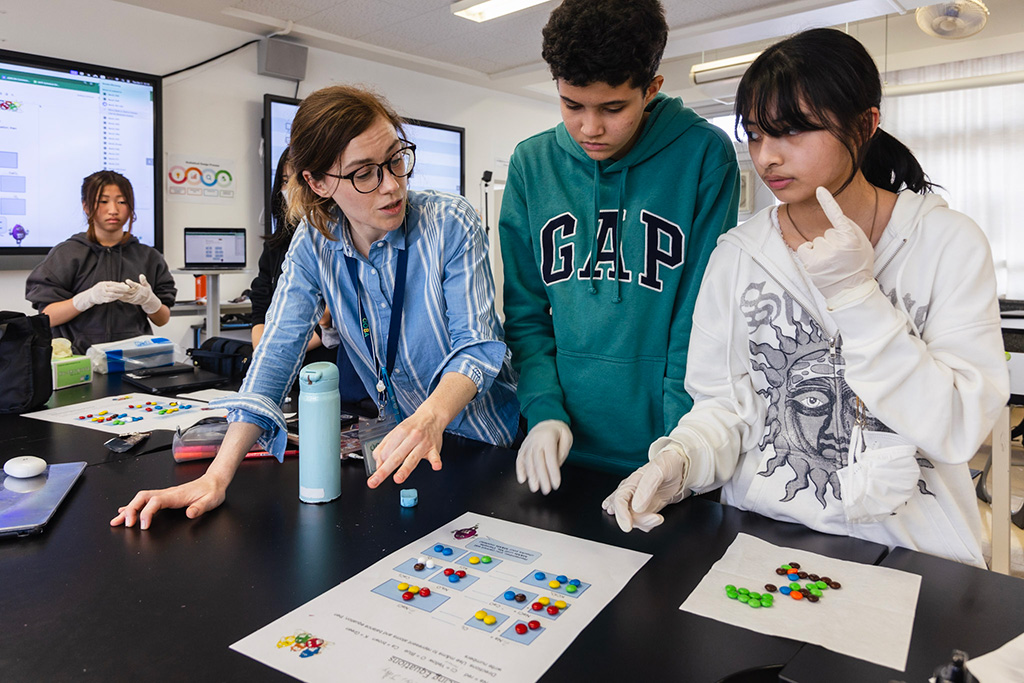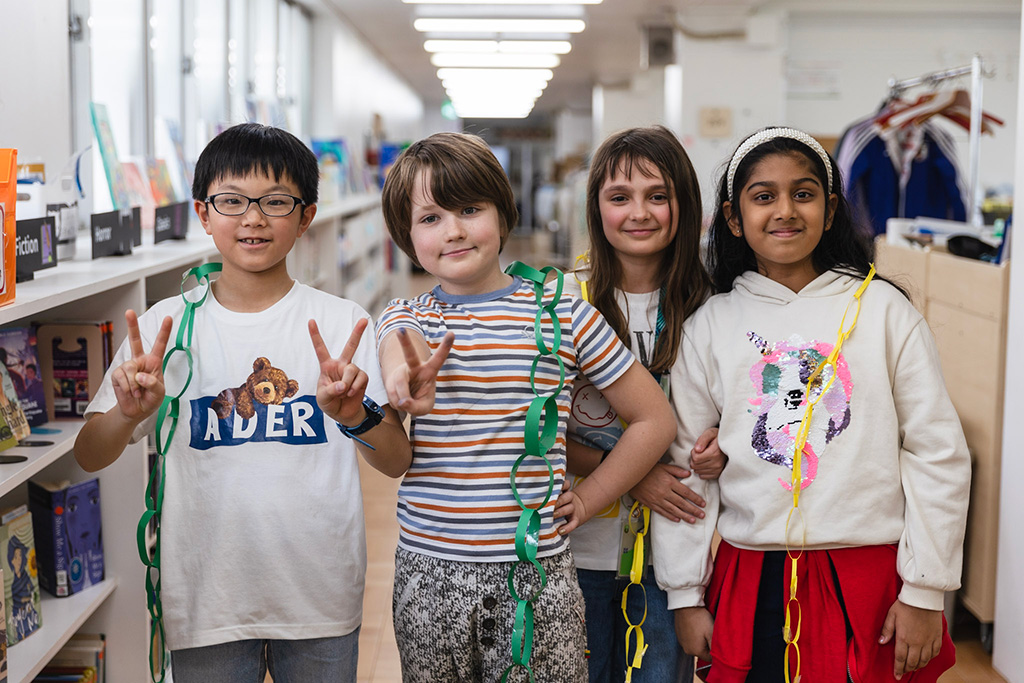
Leading Positive Change!

At Aoba, from kindergarten through high school, students can use the world-standard IB education as a framework to explore their passions through inquiry-based learning, and to cultivate the wisdom and ability to survive in an ever-changing society. Our educational environment, with students and teachers from more than 45 countries and backgrounds, fosters a spirit of respect for each other's differences in culture, language, and customs. Through student-led learning, students hone their positive and active attitudes, and through an emphasis on group work, they develop communication and leadership skills. As an international school located in Japan, there are also many opportunities to learn about Japanese language and culture. In the upper school, in addition to IB education, Aoba offers the Global Leadership Diploma (GLD) program, which allows students flexibility to take elective courses in their field of interest. The IBDP and GLD are now also available as online courses, allowing students the flexibility to tailor their education to meet their individual needs and visions for the future.
Aoba's mission is to nurture global citizens who bring innovation to society, lead others and think entrepreneurially, through its world-class, international curriculum. Grounded in the educational philosophy of fostering the ability to choose one's own life, no matter what the times or where one goes, Aoba aims to cultivate an attitude of constant and ambitious challenge, as well as theoretical decision-making, application, and problem-solving skills. We have five core values in our education. We aim to develop children as Global Leaders, Entrepreneurs and Innovators, Effective Communicators, Wise Risk Takers, and Effective Problem Solvers. Aoba provides an educational environment where students can experience learning from an early age that will enable them to grow into individuals who possess these five core values, and we hope that Aoba students will grow up to be global citizens who can lead their own lives and society for the better in the future.
Aoba has been constantly striving to improve its academic rigor since our first batch of graduates of the high school. The school has grown to the point where our students are now being accepted into the world's top universities every year. In recent years, many students have achieved IBDP scores above the world average. Although the paths of students vary from year to year, our students have gone on to universities around the world, including in Japan, and most importantly, they are pursuing their interests and passions after graduation. Our students have been accepted into the following universities: Univ. of California, Berkeley (U.S.), Imperial College London (U.K.), Univ. of Chicago (U.S.), Univ. College London (U.K.), Univ. of Melbourne (AU), Univ. of British Columbia (CA), Univ. of Amsterdam (NL), Tohoku Univ. (JP), Univ. of Tokyo (JP), Keio Univ. (JP), Waseda Univ. (JP), etc.



| Address: | Meguro Campus (K2-K5): 2-11-5 Aobadai, Meguro-ku, Tokyo 153-0042 Hikarigaoka Campus (K3-G9): 7-5-1 Hikarigaoka, Nerima-ku, Tokyo 179-0072 Bunkyo Campus (G10-G12): 6-18-23 Honkomagome, Bunkyo-ku, Tokyo 113-0021 |
|---|---|
| Access: | https://www.japaninternationalschool.com/contact/ |
| Website: | https://www.japaninternationalschool.com https://youtu.be/AclulNIcRPA |
| Phone: | Meguro Campus (K2-K5): 03-4520-2313 Hikarigaoka Campus (K3-G9): 03-4578-8832 Bunkyo Campus (G10-G12): 03-4560-3422 Online Campus (G11-G12): 03-4560-3422 |
| E-mail: | admissions@aobajapan.jp |
| School culture: | Students and teachers come from more than 45 countries and regions around the world with different languages, cultures, and religions, so the school culture is one of mutual acceptance, coexistence, and growth together. It is also a school culture with a very friendly community because of the strong partnership between families and schools and their commitment to raising children together. |